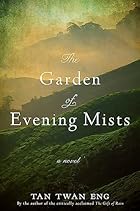Philosophers
get their bread and butter in large part by wondering and thinking and sounding
smart about epistemology (how we know). Anthropologists join philosophers in
wondering about the basics and the nature of humanity. They have written large,
difficult to read texts making the non-studied individual feel inadequate. That
is how they make a living.
Emma
Donoghue touches upon both of these issues as well as others in her novel, Room. In this work a mother and son are
held in captivity for the first five years of the boy’s life (the mother had
been there longer). While in captivity the mother has to make decisions about
how to teach and raise her son. She teaches him to read, mathematics, how to
think, as well as other things. The ordinary day is like a school day, giving
structure and purpose to things. They even have a television to watch. Yet
unlike Plato’s allegory of the cave, the glimmer of things on the television
are not real but are portrayed as imaginary. The shadows remain shadows. What
is real is the room and everything in it. What is real is only the universe
that the young boy knows. Through the book we follow the boy trying to make
sense of a larger world in comparison to the one room world that he had known
for so long.
Just so it
can be said, I think Room is a very
well written, well-put together book. The story is told from Jack’s (the 5 year
old) point of view, his grammar reflecting his understanding of what is real
and what is imaginary. 95% of the time Donoghue pulls off this feat, but every
once in a while Jack thinks something that does not follow the usual thinking
patterns of a five-year-old, even one as different as Jack. That aside, it is a
very good work, a very good novel that offers a number of different questions
without offering any answers. This is a sign of a good work.
How many of
us feel as if we have been living in a Room but have not realized it until we
“escape.” Consider this specifically from the religious point of view. So much
of religious education is teaching a grammar that reflects a belief. In Room Jack’s grammar reflects his
world-view and to a degree his standards of faith. Following the leading of
Bushnell and more currently Macintyre, Lindbeck, and Hauwerwas (among many,
many others) there is a strong school of thought that suggests that in religious
education we need to help children (and adults) learn and develop a grammar of
faith that is reflective of the community. It is one thing to say “Christ is
Lord,” but that speech-act carries a deep sense of meaning that further shapes
how one speaks. We learn how to speak of God, Christ, and our faith. We claim
that our faith tradition offers a salvation from and liberation in life, but
are we simply putting ourselves into a room and shutting the door? Jack’s mom
worked hard to make the nightmare of the Room a place of safety and security
for her son. Do we not do the same with religion?
Let this
sit for a moment and then consider: are we being honest with ourselves? Should
we be? There is a safety and security that comes with the grammar of faith that
we embrace, and that can be a good thing. People’s lives are saved through the
safety of faith. Yet are we free? Is there a world out there that is calling us
to take a chance, to engage at “face-value” and what would that be?
On the one
hand, there is the danger that we can create our own Room of reality that will
isolate us for others. We can create a grammar and narrative that will only see
things in one way and will not offer a place for engagement. The one-way
epistemology was the practice of a mother and son held captive. The only way to
survive was to shape reality into something that held some sense of goodness,
but to control that understanding without any outside input.
On the
other hand, we can have a grammar that shapes who we are, but leaves the doors
and windows open to engage with the world. We can have a narrative of what it
means to be human and at the same time let that narrative be shaped by
experiences with the outside world. This is a much more open understanding of
how to be a community.
Obviously
there are many religious communities that fit the former and many that fit the
later. I believe that we need to engage the world, that we need to be in a
constant flux of back and forth, but with an understanding that there is a
reality from which we speak. We have a Room we can return to, we can invite
other to, and from where we find our sense of identity. That Room can be a
nightmare or it can be a salvation.

